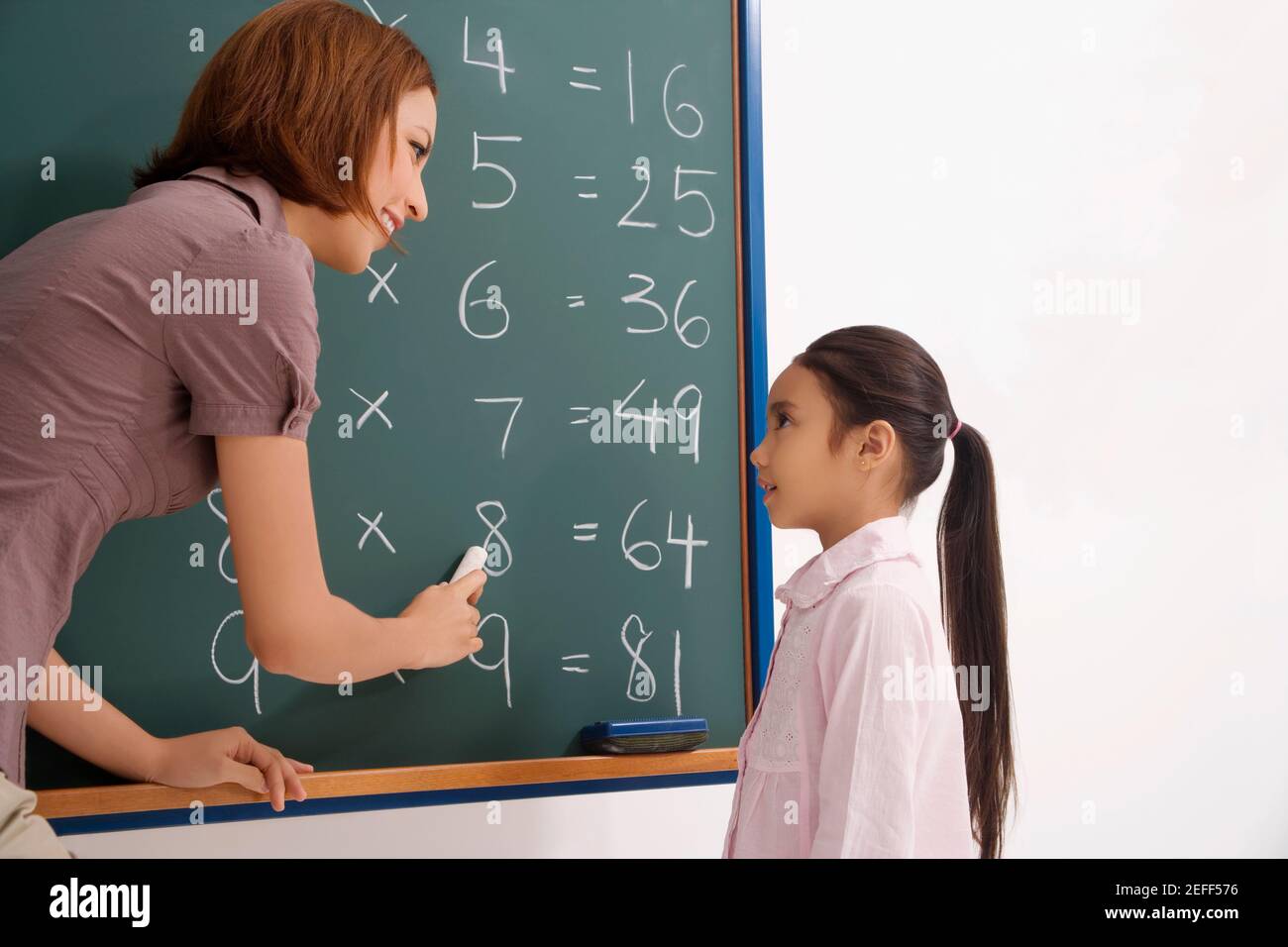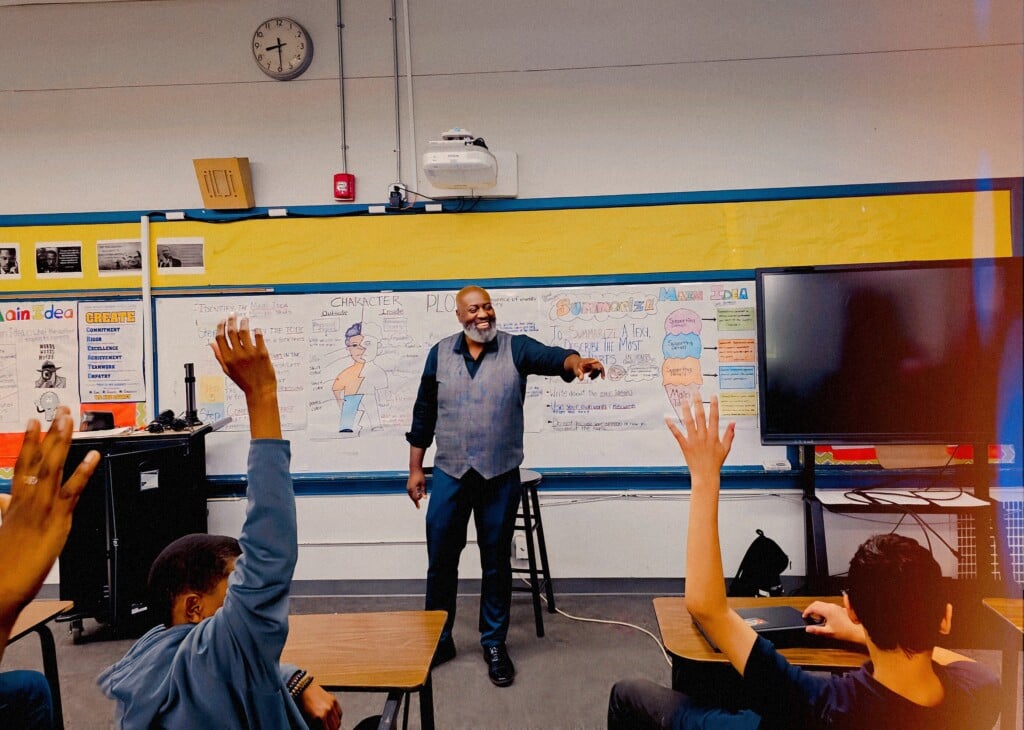Expert Primary Science Tuition Singapore for Understanding Complex Concepts
Expert Primary Science Tuition Singapore for Understanding Complex Concepts
Blog Article
Discovering the Different Mentor Techniques in Primary Science Education And Learning Today
The landscape of primary scientific research education is progressing, with different teaching techniques getting prominence in contemporary classrooms. Inquiry-based learning, hands-on experiments, and the assimilation of innovation are redefining how educators involve young minds. Additionally, collective methods and separated direction are being utilized to deal with the varied requirements of students, improving both involvement and understanding. As we examine these approaches, questions arise about their efficiency and the implications for future academic practices. What might these changes in approach mean for the following generation of learners?
Inquiry-Based Knowing
Inquiry-Based Discovering (IBL) is an instructional technique that motivates trainees to discover clinical ideas via wondering about, investigation, and hands-on experimentation. This approach stresses the duty of pupils as active individuals in their learning, advertising critical thinking and analytical abilities. By engaging with real-world questions, trainees become motivated and curious, which improves their understanding of scientific principles.
In IBL, instructors serve as facilitators, leading students as they navigate their questions rather than providing details straight. This student-centered strategy enables distinction, fitting various discovering paces and styles. Trainees create skills in formulating theories, designing experiments, and analyzing information, which are essential for clinical literacy.
Additionally, IBL cultivates collaboration amongst pupils, urging them to share ideas and searchings for. This collective inquiry advertises social skills and a feeling of area within the class. In addition, the process of questions motivates resilience, as trainees find out to accept failure as a tipping stone towards understanding.
Hands-On Experiments
Hands-on experiments are a vital part of reliable scientific research education and learning, matching the principles of inquiry-based learning. These experiments enable students to engage straight with scientific ideas, fostering a much deeper understanding with experiential learning. By manipulating products and observing end results, young learners can realize abstract concepts in substantial means.
Such activities advertise crucial reasoning and problem-solving skills, as pupils assume outcomes, conduct experiments, and examine outcomes. This procedure motivates them to ask concerns, fine-tune their understanding, and develop a clinical way of thinking. Hands-on experiments can be customized to varied understanding designs, making sure that all students have the chance to involve meaningfully with the content.
In addition, hands-on experiments typically motivate partnership amongst peers, advertising synergy and communication skills. Operating in groups allows trainees to share concepts, talk about searchings for, and gain from one another, which enhances their overall instructional experience.
Including hands-on experiments right into the key scientific research educational program not only improves the learning setting yet also grows a long-lasting rate of interest in scientific research. By actively taking part in their education, pupils are extra most likely to establish an enthusiasm for scientific inquiry that extends beyond the classroom.

Innovation Assimilation
Integrating innovation into key scientific research education and learning has come to be significantly necessary in cultivating pupil involvement and enhancing discovering outcomes. The use of digital devices, such as interactive simulations, digital laboratories, and educational software, provides pupils with possibilities to explore clinical principles in ingenious ways. These sources help with a much deeper understanding of intricate subjects by permitting learners to envision and control variables that would be impractical in a conventional class setup.
In addition, innovation assimilation encourages individualized learning experiences. Pupils can advance at their very own speed, try this site taking another look at tough principles via multimedia resources, which deal with different learning styles. This adaptability not only sustains private growth however additionally grows a feeling of freedom in students.
In addition, modern technology functions as a bridge to real-world science, linking pupils with present study and professional payments. Accessibility to scientific journals and online data sources widens students' perspectives on clinical inquiry and cultivates critical thinking skills.
Collaborative Discovering
Collaborative learning plays an important duty in key scientific research education by fostering team effort and communication abilities among trainees. This technique motivates students to collaborate, share expertise, and engage in analytic, which boosts their understanding of scientific ideas. By taking part in team activities, trainees discover to express their concepts, pay attention to diverse point of views, and bargain services, all of which are essential skills in both academic and real-world contexts.

Research study shows that collaborative discovering can result in enhanced motivation and involvement in science topics, as pupils discover pleasure in shared experiences (primary science tuition Singapore). Furthermore, this strategy prepares pupils for future joint undertakings, equipping them with the abilities required for reliable teamwork in higher education and learning and professional settings. Eventually, welcoming joint discovering in main scientific research education and learning can considerably enhance the discovering experience and promote a deeper understanding of scientific query
Set Apart Direction

Set apart direction can materialize in various methods, such as varying the material, processes, or products of knowing. Teachers may utilize tiered projects that provide varying degrees of intricacy, permitting pupils to function at their respective readiness degrees. Furthermore, adaptable organizing techniques can assist in collaboration amongst students with different capabilities, fostering peer understanding.
Assessment plays a vital role in this strategy, as it educates direction and aids instructors recognize each pupil's unique needs. Formative evaluations, such as monitorings and quizzes, can assist educators in changing their strategies to improve learning outcomes. primary science tuition Singapore. Inevitably, by implementing separated guideline in primary science education, instructors can grow an extra equitable and effective knowing environment, equipping all students to reach their complete capacity in comprehending scientific sensations
Verdict
In summary, the varied mentor approaches in main science education, consisting of inquiry-based knowing, hands-on experiments, modern technology assimilation, collaborative discovering, and differentiated direction, jointly add to a more efficient discovering environment. These techniques promote essential reasoning, problem-solving abilities, and a much deeper understanding of scientific principles. By carrying out these strategies, teachers can develop supportive and appealing class that address the different needs of trainees, inevitably cultivating a long-lasting interest in science and enhancing academic accomplishment.
Inquiry-Based Knowing (IBL) is a pedagogical technique that encourages trainees to explore clinical ideas via questioning, examination, and hands-on trial and error.Joint discovering plays an important function in key scientific research education by fostering teamwork and interaction abilities amongst hop over to these guys pupils.Research study indicates that joint understanding can lead to boosted motivation and engagement in science topics, as trainees locate satisfaction in shared experiences.In fostering an inclusive understanding atmosphere, differentiated instruction emerges as an essential technique to accommodate the varied demands and abilities of trainees in primary scientific research education and learning. Eventually, by applying differentiated instruction in primary science education and learning, educators can cultivate an extra reliable and fair knowing setting, encouraging all students to reach their complete capacity in comprehending scientific phenomena.
Report this page